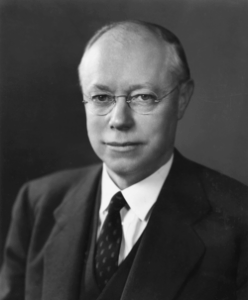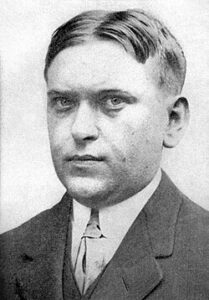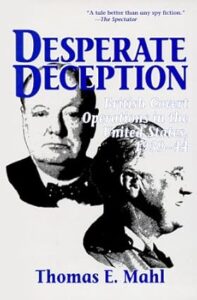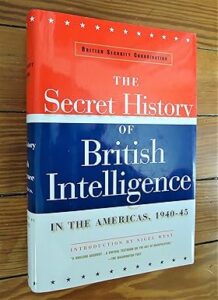The push to bring America into World War II was not a spontaneous or democratic decision.
Behind the scenes, powerful international interests, including British intelligence and Wall Street elites, worked to manipulate public opinion and political outcomes.
One man who stood firmly against this wave was Senator Robert A. Taft. As Michael Collins Piper revealed, Taft’s principled stand against intervention made him a target.
His story, along with the covert efforts to remove him from influence, uncovers a disturbing chapter in American history.
Senator Robert A. Taft: A Forgotten Patriot
Senator Robert A. Taft of Ohio stood as one of the most steadfast opponents of U.S. involvement in World War II.
His life and political career are beautifully chronicled in Mr. Republican by James T. Patterson (Houghton Mifflin, 1972).
This highly readable biography is a must-read for anyone interested in American politics before and during the war.
Taft’s integrity made him immune to manipulation.
When Wall Street interests offered to support his 1940 presidential bid—on the condition that he abandon his non-interventionist stance—Taft refused.
Despite being a front-runner for the Republican nomination and a serious threat to FDR’s third-term ambitions, Taft was pushed aside through a manipulated convention process.

The Willkie Switch: A Convention Conspiracy
Wendell L. Willkie’s sudden rise at the Republican National Convention in 1940 was marketed as a “dark horse stampede.”
But that image was carefully manufactured.
In Desperate Deception: British Covert Operations in the United States, 1939–1941 (Brassey’s, 1999), author Dr. Thomas F. Mahl provides clear evidence that Willkie’s nomination was no accident.
Wealthy American interests, aligned with FDR’s foreign policy, orchestrated the entire affair.
Readers looking for a deep investigation of this covert campaign should consider Mahl’s work.
According to Mahl, British intelligence played a major role in sabotaging Taft’s campaign while promoting Willkie.
Their methods included bribery, blackmail, vote manipulation, and corruption—all used to undermine Taft and secure a candidate who aligned with British goals.
British Intelligence Manipulates American Politics
Desperate Deception is more than a historical account; it is a detailed study of foreign interference in U.S. politics.
Kirkus Reviews praised the book for its use of declassified FBI files, memoirs, and official reports.
Mahl revealed that Britain, desperate to win the war against Nazi Germany, launched a vast propaganda and espionage effort in the United States.
One of the central figures in this campaign was William Stephenson—nicknamed “Intrepid”—who managed covert operations from his office in Rockefeller Center.
These efforts included rigging opinion polls, inserting pro-British stories into American media, and funding congressional races to defeat isolationist politicians.
Mahl’s findings show that British agents even helped establish the Office of Strategic Services (OSS), a predecessor to the CIA, and played a key role in its operations.
For those interested in intelligence history and foreign influence on American decision-making, Desperate Deception is essential reading.
ADL Involvement and Hidden Connections
One of the key figures mentioned in Mahl’s book is Sanford Griffith.
Although Mahl does not go into detail, Michael Collins Piper pointed out that Griffith was later known to be an informant for the Anti-Defamation League (ADL) in New York.
Evidence suggests that Griffith may have served both British intelligence and the ADL during the war and possibly even earlier.
This dual role mirrors that of famed journalist and radio personality Walter Winchell.
According to Neal Gabler, author of Winchell: Gossip, Power and the Culture of Celebrity (Knopf, 1994), Winchell operated as both a media figure and a covert agent for the ADL and British intelligence.
Readers interested in this aspect of media history can find an in-depth analysis in The Judas Goats by Michael Collins Piper.
The British Security Coordination Exposed
Another critical source is The Secret History of British Intelligence in the Americas: 1940–1945, published by Fromm International in 1999.
This book is a reprint of a once-classified British Security Coordination report.
It outlines the establishment of a spy network in the Americas designed to sway the U.S. toward war.
According to a revealing Amazon description, British agents operated across North and South America, running counterintelligence, spreading propaganda, and even placing operatives in labor unions and media outlets.
Stephenson’s team intercepted enemy communications and used major American journalists—including Walter Winchell and Drew Pearson—to push pro-British views.
Mencken Was Right All Along
H. L. Mencken, the famed “Sage of Baltimore,” had long suspected that his publisher at The Baltimore Sun was a British asset.
When Mencken’s personal diaries were released, critics mocked his claim.
But The Secret History of British Intelligence in the Americas confirmed that his suspicions were accurate.
This revelation added credibility to Mencken’s already bold critiques and validated concerns that American media had been compromised during the war years.
For a deeper look at how literary and political voices like Ezra Pound and H.L. Mencken shaped American populist thought, see my post Ezra Pound, H.L. Mencken, and the Populist Tradition.

The Second Betrayal of Robert Taft
Senator Taft’s troubles did not end in 1940.
In 1952, history repeated itself.
Once again, his presidential ambitions were blocked—this time by supporters of former General Dwight D. Eisenhower.
Many of the same globalist and interventionist forces who backed Willkie returned to derail Taft’s candidacy.
At the time of his death in 1953, Taft was the Republican Senate Majority Leader.
Some believe that his death—officially caused by cancer—was suspicious.
Rumors persist that he may have been intentionally killed, possibly with a cancer-inducing injection.
His removal left the field clear for Eisenhower’s liberal internationalism to dominate the GOP.
Michael Collins Piper viewed Taft as one of America’s last great patriots.
His principled stand against war, globalism, and foreign manipulation came at a high cost—but his legacy endures.
A Legacy of Resistance and Revelation
Senator Robert Taft stood against war, corruption, and foreign manipulation.
His downfall, orchestrated by both American elites and British agents, reveals how powerful forces conspired to push the United States into World War II.
Through the research of historians like Thomas Mahl and the insights of Michael Collins Piper, we see just how deeply foreign intelligence and domestic pressure groups shaped American history.
Books like:
Are not just historical records—they are keys to understanding how liberty was subverted in the name of global war.
Readers seeking truth must explore these works and share their findings widely.



